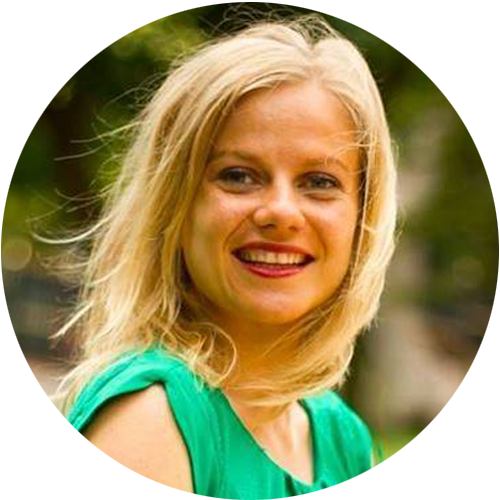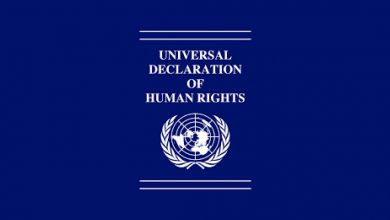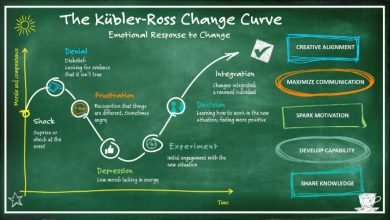Expanding one’s worldview
This tool provides insight on the process of expanding one's worldview from a narrow-minded, dogmatic one to one that is more understanding, inclusive and accepting of different views and belief systems.

Why did I choose this tool? Since the process of expanding one’s worldview, reflecting on and shifting stereotypical constructions of reality is a very personal one it can be helpful to have a personal account of how someone was able to accomplish this and what the process was like for them. While open-mindedness can seem like a given in some circles, it can be a completely foreign concept in others.
How does this apply to being a trainer? The insight provided by the story “failed missionary” can help to understand the thinking behind a more conservative or dogmatic viewpoint, and the challenge and difficulties of gaining a new perspective. At the same time, it gives hope that the shift from dogmatism and bias to a more understanding and inclusive worldview is always possible.
Main content:
Have you ever felt so strongly attached to a certain belief, habit, way of thinking, or way of living that you couldn’t imagine yourself being any other way? Have you ever felt that your way was the only way, the right way, and perhaps felt the need to convince others who felt differently about the “error of their ways”?
This can happen when we attach certain elements to our identity, and if we are very strongly attached to those things chances are we feel that it is a “good aspect” of our identity. This happens when we make certain associations, such as:
“I’m successful because I’m hardworking.”
“I’m kind because I’m a Christian.”
“My life has a purpose because I’m a mother.”
“My friends like me because I’m funny.”
In themselves, these associations are not necessarily harmful, and our minds need to make certain associations of cause and effect to function and to make decisions. What can be limiting and potentially harmful is when we take this association and become dogmatic about what it means for us and others. In this case, the associations are transformed into:
“The only way to be successful is to be hardworking.”
“Only Christians are kind.”
“Only mothers have a purpose in life.”
“Only funny people have friends.”
In this case, we can start to limit our own possibilities as well as put others in a box, and make perhaps erroneous assumptions about what they are all about and what is possible for them.
The truth is that at the end of the day everyone is doing what they believe to be right according to the knowledge and awareness that they have. Understanding their motivation, and ours, for being the way we are and doing what we do is much more useful than trying to evaluate whether someone’s behavior or beliefs are right or wrong.
On this topic, one story that I found very enlightening is “Failed Missionary”, written by Rhonda Vander Sluis and included as one of the stories in the book “Expat Harem”. It is about an American woman who travels to Turkey to be a missionary, convinced that bringing salvation to the “unreached people” in Turkey was a good and noble endeavor. Along the way the things she sees and experiences cause her to question what she always thought to be true, and in the process to question herself, her mission, her core beliefs and her identity.
Having had a lot of exposure to the idea of missionary work myself, I now define a missionary as someone whose goal it is to persuade other people that their beliefs and way of living are superior and to convince them to adopt it as their own. Perhaps the only exception I have seen to this are some Catholic nuns that dedicate their lives to helping children, poor people, sick people or the elderly and run very impressive hospitals, schools, orphanages, homes for the elderly, etc. Mother Theresa would perhaps be the most well-known example of this type of missionary. I have nothing but admiration for this particular brand of missionaries and have seen that they are also very respectful and accepting of different cultures and religions, their objective being to live by their beliefs and help people in the way they need it regardless of their religion or culture.
Having clarified the exception to the previous definition I made of missionaries “someone whose goal it is to persuade other people that their beliefs and/or way of living is superior and to convince them to adopt it as their own”, I want to point other groups of people who I believe do fall under this definition. The most relevant one would be people who are staunch atheists or agnostics, but who are also not content to just live by their own beliefs and allow others to do the same. Rather, with the aggressiveness and zeal of the most dedicated missionaries, they work tirelessly to convince others that their beliefs are the only correct ones and that everyone else is wrong at best and dangerous at worst. They have automated responses and arguments that they are ready to present at any occasion, and when you speak to them on this topic it becomes clear very soon that they are not “listening to understand” but rather “listening to disagree” or “listening, waiting to speak” (for more information on these types of listening check out the article “Are you really listening?” in the communication competence section).
So when reading this story about the “Failed Missionary”, think about not only missionaries for a certain religion but anyone who would fall under the category of “someone whose goal it is to persuade other people that their beliefs and/or way of living is superior and to persuade those who don’t have the same beliefs and/or lifestyle to embrace it and adopt it as their own”.
The story is about Rhonda Vander Sluis, an American woman who goes to Turkey as an “undercover” missionary. Her goal is to evangelize Muslims or “unreached peoples” in missionary lingo, and she chooses Turkey because she believes it will be easier. After all, it is technically a secular country and perhaps more modern and open-minded than some of the other Muslim countries. But because it was still illegal to proselytize in Turkey, she goes with the cover of “learning Turkish” and although most of the people she meets suspect her to be a religious worker anyways they indulge her by not pressing the issue.
Since she is encouraged to live with a Turkish family as a way of learning about the language and culture, she winds up living with “Mustafa amca and Gülsüm teyze” (amca and teyze mean uncle and aunt and is a way of respectfully addressing elders in Turkey). After she arrives, in her words “I prayed for God to bless my fledgling missionary career and to protect me from the influence of the Muslim faith, which I had been programmed to believe was Satan-inspired and dangerous”.
She was amazed by the kindness and hospitality of this Turkish family. They were not only welcoming of her and her other missionary friends, but they put great effort and went out of their way to be there for her in any way she needed it. In her words, “I felt nurtured and loved in a completely unexpected way.”
Through these everyday interactions, discussions, watching television together at night and many cups of piping hot tea, she started to feel at home and like a part of the family. She was having a good time, but she was feeling guilty about it. In her words,
“Wait, I was here to evangelize. I couldn’t sit around all day drinking tea and watching television. I had to justify my existence to the eager supporters back home. We had all decided that these people were lost; it was up to me to bring them the message of salvation.”
One hot August day, she had an experience that was key in shifting her perspective. She was surprised to find herself in the middle of a Muslim prayer session while attending Mevlut (a ceremony that is held 40 days after the birth of a baby). She panicked, not wanting to be rude or impolite but also not wanting to go against her deeply held beliefs. While the Koran was being cited, she was citing bible verses in her mind as a way of “protecting herself”, and in her words “praying furiously for God to forgive me for any real or perceived transgressions”.
When her hostess saw her predicament, she was profusely sobbing by then, she didn’t press her with questions or lectures about what she should or shouldn’t do, or why she would react so strangely to Muslim prayers. She just whisked her away to a quiet corner, gave her some grape leaves and a Cola, and in the process showed her what it means to have compassion, unconditionally.
She soon started seeing this family, and in essence the Muslim religion, in a different light. In her words:
“All of the good Christian values that I had been led to believe we’re the result of Jesus’s transformative power and were existing in the lives of this typical Turkish family. They weren’t acting like they were “lost.”
Service. The motto of my mission organization was “We take servanthood seriously.” That could’ve been Mustafa amca’s motto. He rose selflessly before anyone else to build a fire in the woodstove every morning and would run to get the bread from the bakery up the road when those younger and healthier
were too tired. He insisted on being the one to stand in line to pay the electric and phone bills and would heave my oversized suitcases up three flights of stairs when I arrived back from vacations, despite my protests. In a society where male machismo behavior is common, Mustafa amca regularly took up the teakettle and served the rest of us.
Stewardship of God’s gifts. Nothing was wasted in this household; all of our casual discards were carefully stowed away in the “flea market,” the upstairs bedroom of their village home, awaiting careful allocation to people in need. Gülsüm teyze knew which young man needed a suit of clothes for a job interview, which construction worker’s wife had just given birth to triplets, what little boy needed a toy car or a pair of socks.
God’s provision. “God provides for my needs before I even ask him,” Gülsüm teyze once marveled, unconsciously repeating a Bible verse that I thought was the exclusive province of Christianity. “Just last week I realized that I needed a rug for that space in front of the washing machine, and this week your friend Ruth gave me one that is the perfect size,” I remember my surprise at hearing a Muslim pray to God for mundane things in the same way that we Christians did.
Justice. Gülsüm teyze told me the story of their hired hand, who, after many years of faithful service, absconded with their butter machine, forcing them to shutter the family yoğurt business they had run for thirty years. Their son Hasan was furious and wanted revenge. Gülsüm and Mustafa decided to leave the matter in God’s hands. A familiar Bible verse came to mind: “Vengeance is mine, says the Lord. I will repay.”
Sure enough, years later, the man turned up on their doorstep, ruined and begging for forgiveness. “You sinned against God,” they said. “Go to God for forgiveness.”
Patience and kindness. Learning a language is a humiliating experience. It is also a very tedious process for the people who have to listen to you. The temptation to make fun can be irresistible. My family worked overtime to unobtrusively run interference for me in interactions with relatives, interpreting the intended meanings of my half-sentences and mispronunciations. I felt like an autistic child with a special language that only the close family members could understand. But they never laughed at me.”
Through her interactions with her hosts, or her family as she had started calling them, she began to question other aspects of her beliefs as well. When they discussed the issue of Christians believing that Muslims will go to hell, and Muslims believing that Christians will go to hell, they realized that neither wanted to accept that the other was headed for eternal damnation. Her firm belief system was starting to crack, as she interacted so much with a Muslim person who was so far from being “dangerous” or “evil”.
Eventually, she grew tired of this constant contradiction and of trying to be something she was rapidly becoming disillusioned with. She was also becoming very physically and mentally exhausted from the constant demands that the church was placing on her, in contradiction to the family who told her she was working too hard and that she should relax. She began to no longer share her compatriots’ zeal for “converting the heathen”, and felt that she went from being a missionary masquerading as a normal citizen to a normal citizen masquerading as a missionary. In her words, “the God that I was coming to know was too big for the boxes that fundamentalist Christianity wanted to put him in”.
All of this resulted in an emotional breakdown. After a long night of nursing a woman who was dying of cancer, she had just sat down at the church to administer hepatitis B injections to a missionary couple who had just arrived, and a church member rushed in with yet another demand on her time and energy. She ran out of the building in tears, going straight to the only place where she actually felt she could be unconditionally loved, accepted and comforted. They loved her for who she was and not for the multitude of things that she could do for them.
Eventually, they whisked her away to a holiday on their mountain village home, where she rested, ate their delicious food, and had an endless supply of Turkish tea and biscuits. She thought of what she was going to do next, wanting to stay with her Turkish family but completely disillusioned with the missionary life, the whole reason why she was in Turkey, to begin with. Sadly, she developed a severe case of bronchitis and her mother was diagnosed with cancer, which left her no choice but to leave Turkey and return to the US. Her final days in Istanbul were filled with so much emotion and confusion, as she tried to make sense of her experience and, as she would later come to understand it, her transformation.
In her earlier years, during her quest for belonging and meaning, she had absorbed the fundamentalist Christian doctrines without ever questioning them. And she had gone to Turkey with the best of intentions, a self-proclaimed “idealistic do-gooder”. She thought that her personal example would work wonders and through it God’s spirit would change people for the better and convert them to her belief system. She never expected that the people she had come to change would change her and that their example reflected in their kindness, acceptance, generosity, hospitality and all the above-mentioned qualities would actually cause her to let go of fundamentalist doctrine that had been a part of her belief system for so long. She failed as a missionary, but she didn’t feel like a failure.
In her words, “I forged a bond of mutual love and respect with my Turkish family that transcended cultural and religious differences, as well as a formidable language barrier. My own understanding of spirituality had been radically transformed. Thanks to Turkey and this special Turkish family, there was one more citizen of the world celebrating the validity of the many diverse roads to God. And there was one less fundamentalist Christian, insisting on just one path.”
Reflection questions:
What is something that you have always been certain was true/the right way?
Did something that happened to you cause you to rethink or re-evaluate where you stand?
What was it and how did it happen?
How did you feel when you were in the process of re-evaluation?
What conclusions did you come to?
How do you feel about the issue now?
What kind of support did you need to go through the process and come out on the other side?
Exercises:
How to apply it in everyday life:
Think about your answer to the last question, what kind of support did you need to go through the process and come out on the other side?
When you see that someone might be struggling with this, changing perspectives or beliefs, think about what they might be needing at that moment and see if you have the possibility to be there for them and support them through the process. Some ideas are:
- A listening ear
- Unconditional acceptance
- Someone who won’t judge them for who they are or who they might be becoming
- A break from the intense setting (like in the story when she was given a break from the difficult moment and a snack)
- Someone who they can bounce off their ideas and confusion and sort through it without pressure or judgment
Every person and situation is different, so it’s important to be in touch with your intuition to know what is needed at that moment for that particular person. Especially if you have been through the process of shifting your own beliefs chances are you have what it takes to help another person through it.
Closing:
A sentence you can always remind yourself and others, as we face multiple shifts of direction and perspective through our lives, is:
“I did the best I knew how with the knowledge and awareness I had at the time.”
One thing that can prevent us from changing our beliefs and perspectives is when we believe that it will mean that everything we have done with our previous perspective was wrong and something to be ashamed of. Ironically it makes us hold on more emphatically to beliefs and behavior even though we might suspect that they need changing or updating because the thought of having been wrong all this time can be too painful to bear.
Instead, we can choose to allow ourselves to change and evolve, without making ourselves wrong, by understanding that our intention was always to do what was best for ourselves and/or others. The girl in the story was sincerely trying to help people in the way she thought they needed to be helped. Her intention was good, she simply came to realize that the way she was doing it wasn’t actually helping and was in some ways damaging (at least to herself). In the same way, we might learn better ways to fulfill our good intentions, and at that moment it takes courage to recognize it, embrace it, and go on with new awareness.





